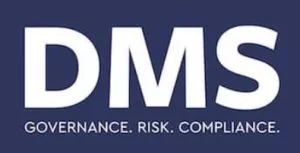After finishing the second reporting round for US FATCA, Foreign Financial Institutions (FFI) must now prepare for what will be the most arduous international tax compliance hurdle to date: the Common Reporting Standard, or CRS. In this article, we reflect on what's at stake, and how firms can ensure full compliance with the new regulatory regime.
Launched six years ago, the US Foreign Account Tax Compliance Act (FATCA), which passed as part of the Hiring Incentives to Restore Employment (HIRE) Act, is an initiative to identify US persons that have failed to declare offshore investments, and prevent such investors from avoiding taxation using offshore accounts that are held through FFIs or certain Non- Financial Foreign Entities.
Over 100 jurisdictions have now entered into intergovernmental agreements (IGA) with the US to simplify FATCA reporting and compliance, and to avoid withholding. Entities outside the US will need to determine their classification for FATCA to determine the applicable due diligence and reporting obligations in accordance with local regulations and IGAs. FATCA and the IGAs place unprecedented emphasis on due-diligence and remediation procedures on entities in order to identify and report Specified US Persons.
The reporting systems that were in some instances built from scratch and implemented for the purpose of processing and submitting relevant FATCA data had their hiccups and technical challenges which resulted in some delays and deadline changes in several regions. Thus, while FATCA ostensibly went "live" in 2014, it remains a work-in-progress in many jurisdictions.
Even so, FFIs must now get ready to deal with the next challenging international tax compliance hurdle: CRS, which went into effect on January 1, 2016 for early adopters (among them the Cayman Islands, BVI, Ireland, and Luxembourg) and will come into effect for the second wave adopters (i.e., Switzerland, Hong Kong and Singapore) in 2017. Developed by the Organisation for Economic Co-operation and Development (OECD), CRS, similar to FATCA, is an automated exchange of financial information in tax matters to increase tax transparency, but this time on a global level with more than 100 participating jurisdictions.
CRS requires that FFIs conduct full due diligence and subsequently file reports to their regional tax authorities, which will then in turn distribute the information to the respective authorities in the participating jurisdictions. As CRS seeks to ascertain investors' tax residency in order to detect and deter tax evasion to increase tax transparency, FFIs should collect self-certifications from investors in order to satisfy due diligence requirements and document investors properly for CRS. FFIs located in the early adopter countries which introduced CRS on January 1, 2016 should already be collecting self-certifications and generally obtaining those within 90 days of a new account opening.
Whereas FATCA reporting is limited to a single jurisdiction (the US), CRS requires that data be distributed to multiple jurisdictions through bilateral or multilateral agreements. While most jurisdictions will pursue the route of the multilateral agreements, jurisdictions such as Singapore and Hong Kong will exchange information only with those jurisdictions with whom they have signed bilateral agreements. CRS also offers the so-called "Wider Approach" which many jurisdictions adopted that allows FFIs to collect data relating to the country of residence and the Tax Identification Number (TIN) from all customers, not only residents of participating jurisdictions. This approach aims to reduce costs for FFIs because they would not need to perform additional due diligence each time a new jurisdiction joins.
Given the complexity of these reporting requirements, hedge funds, private equity and other alternative strategies may benefit from outsourced assistance during the implementation of CRS.
International Tax Compliance (ITC) Nuances
With specific regard to the fund sector, a fund is responsible for ensuring compliance with the ITC obligations in its jurisdiction. Funds generally rely on the information collected by and received from the fund administrator, which may not always yield the correct result. For example, administrators typically aren't totally accountable for the accuracy of data collected from investors, since the final approval and responsibility still remains with the people charged with governance of the fund or with the appointed delegate. Additionally, those charged with overseeing regulatory matters may not be aware of the significant nuances that distinguish one set of rules from the next – there are, after all, substantive differences between FATCA and CRS.
Though it would be convenient for all participating jurisdictions to have standardized XML schemas for FATCA and CRS, different regions often use their own unique set of requirements for FATCA. For instance, Model 2 jurisdictions, as well as countries without a Model 1 intergovernmental agreement (IGA), must file data using the International Data Exchange Service (IDES) which requires special XML encryption as well as a certificate, enabling participants to upload files directly to the IRS reporting system (Singapore is one such Model 1 jurisdiction that utilizes IDES). Lack of standardization also means that filing deadlines may vary from one jurisdiction to the next; additionally, in some areas, the process of filing may be markedly different from in other regions.
For example, Cayman and BVI FFIs must first meet a notification or enrollment deadline in order to be eligible to file; in Luxembourg, FFIs must transmit reports through a pair of specific local providers, requiring filers to enroll in advance as well as pay for each filed report. Finally, it is up to the fund to ensure that all investors are compliant under FATCA and CRS (whether or not the fund administrator has performed preliminary investor classifications).
Helping Hands
The intricacy of these new international tax reporting initiatives has become a primary driver of external reporting solutions, particularly as managers become increasingly cognizant of the resources needed to keep pace with the enhanced due diligence, increased workload and reporting under FATCA and CRS. From a fund director's perspective, the reputational stakes can be quite high: one doesn't want to have to explain to investors why the wrong status was inadvertently reported to the tax authorities, or why the administrator failed to notify tax authorities about reportable entities that had been accidentally omitted from the regulatory filings.
Fortunately, an outsourced partner with expertise in the international tax compliance field can offer tailored, cost-effective solutions for collecting and monitoring data on a multi-jurisdictional basis as well as giving companies the dexterity to track and dissect tax information across the entire global constituency. Providers can review investor classifications for determining FATCA/ CRS obligations as well as possible reporting exemptions, prepare IRS forms and self-certifications, act as principal point of contact for ensuring full regulatory compliance in the respective jurisdiction, as well as offer other integral services.
Given the significant data demands of FATCA and CRS, firms should continue to address manual or redundant methodologies that could potentially hamper the due-diligence process. Automated third-party solutions can help streamline document review procedures that will certainly be put to the test under these new regulatory regimes, while improved system integration will lay the groundwork for more efficient data-gathering through multiple sources.
Companies that have already engaged third-party experts for handling FATCA should determine if their partner can also provide CRS-related services. Bottom line: taking advantage of these outsourced offerings can ensure that funds are able to deal with the complexity and nuances of the international tax compliance requirements.
The content of this article is intended to provide a general guide to the subject matter. Specialist advice should be sought about your specific circumstances.


